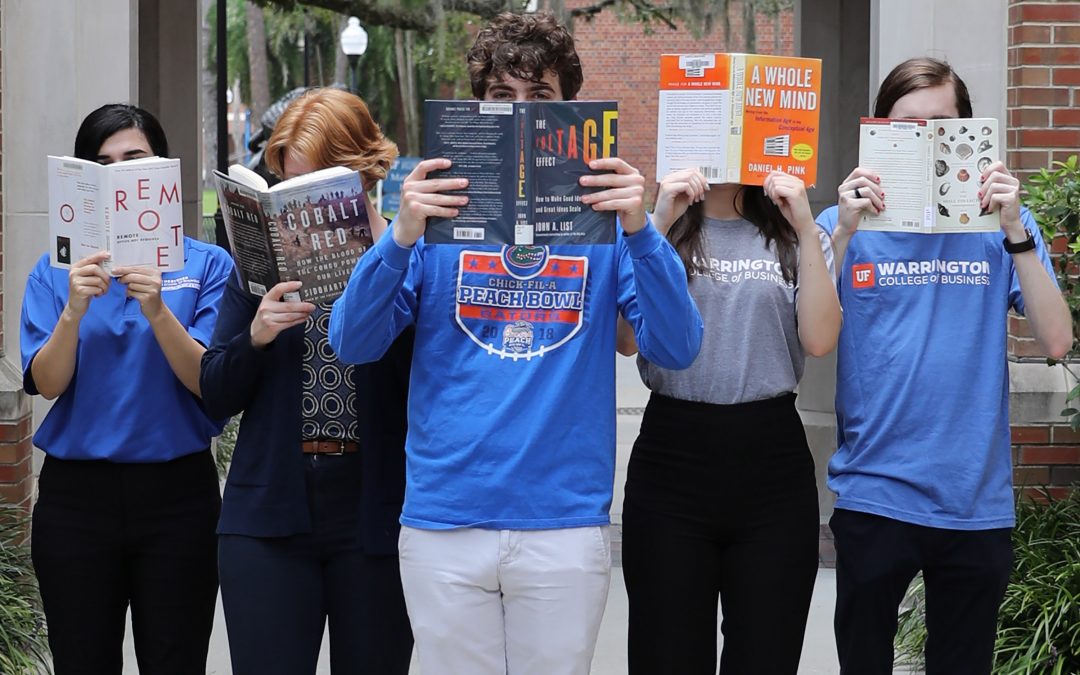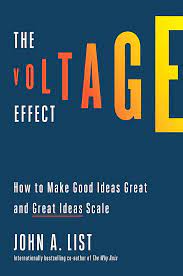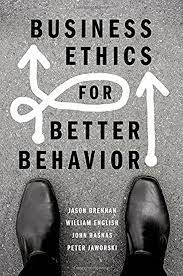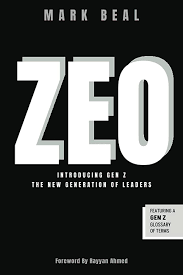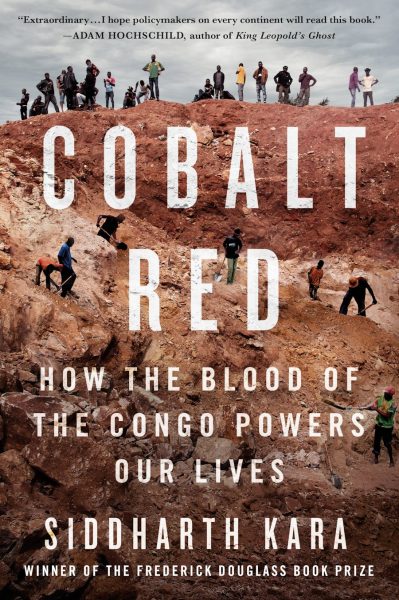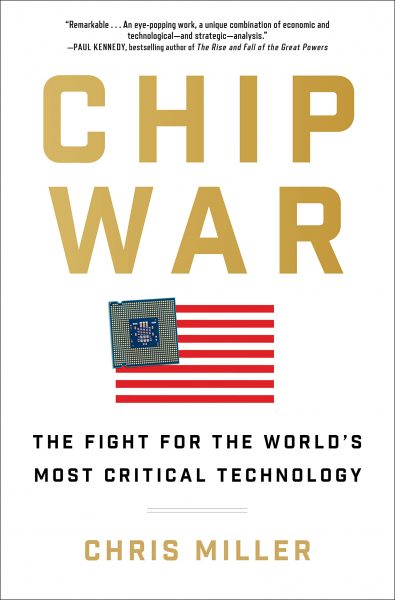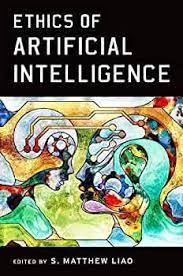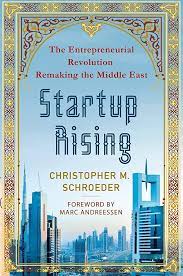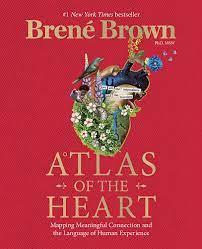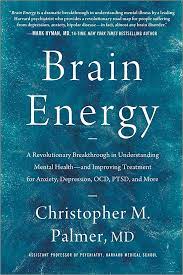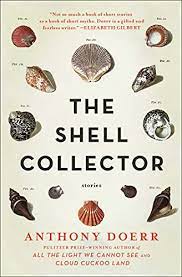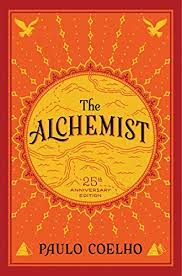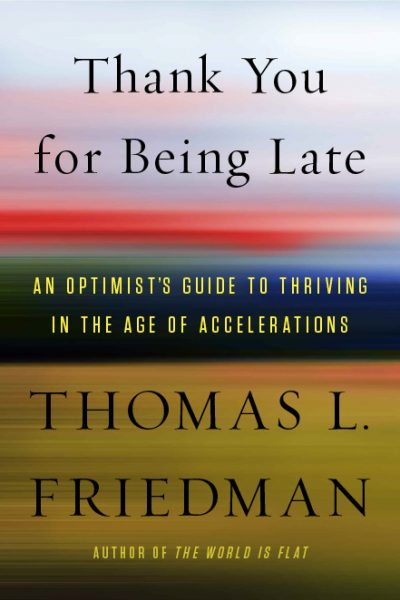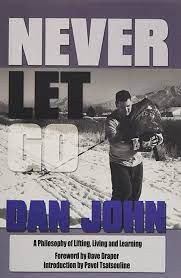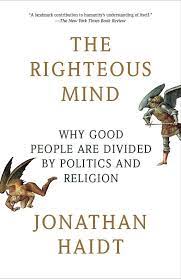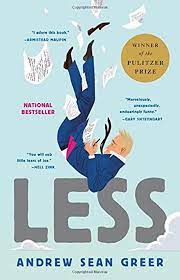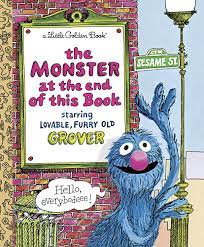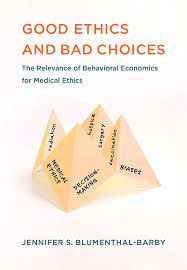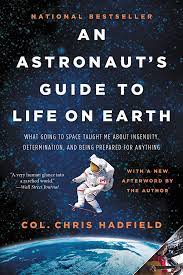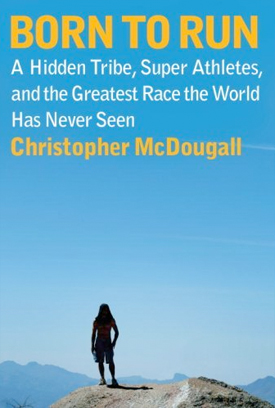Your 2023 summer reading list
Faculty and staff across the Warrington College of Business selected their recommendations for books to read this summer. See their selections and what insights you’ll get out of reading each in the list below.
The Voltage Effect: How to Make Good Ideas Great and Great Ideas Scale
By John A. List
“Making good ideas is a process that involves creativity, critical thinking, and effective problem-solving. This wonderful book tells you that while there is no guaranteed formula for generating good ideas, there are several strategies and techniques that can help stimulate your thinking and increase the likelihood of coming up with valuable and innovative concepts.”
– Liangfei Qiu, Associate Professor, Department of Information Systems and Operations Management
Business Ethics for Better Behavior
By Jason Brennan, William English, John Hasnas and Peter Jaworski
“Business Ethics for Better Behavior concisely answers the three most pressing ethical questions business professionals face: What makes business practices right or wrong?; Why do normal, decent businesspeople of good will sometimes do the wrong thing?; and How can we use the answer to these questions to get ourselves, our coworkers, our bosses, and our employees to behave better?
Business Ethics for Better Behavior teaches business professionals, students, and other readers how to become aware of those traps, how to avoid them, and how to dig their way out if they fall in. It integrates the best work in psychology, economics, management theory, and normative philosophy into a simple action plan for ensuring the best ethical performance at all levels of business practice. This is a book anyone in business, from an entry-level employee to CEO, can use.”
– Brian Ray, Director, Poe Business Ethics Center
ZEO: Introducing Gen Z – The New Generation of Leaders
By Mark Beal
“Valuable insights into how this generation of college students and young professionals differs from previous generations, shaped by the pandemic in their formative years, and entering the workforce with new ambitions and goals. If you teach Gen Z, work alongside Gen Z, supervise Gen Z, or know any Gen Z, you will gain insights into how they operate and what motivates them. A quick read to bring you up to speed as our newest young professionals enter the world of work.”
– Catherine Coe, Director of Competency Development and Program Evaluation, Heavener School of Business
A Whole New Mind
By Daniel Pink
“[This book provides] a list and discussion of abilities needed for professional success and personal fulfillment.”
– Cheryl Aasheim, Clinical Associate Professor, Department of Information Systems and Operations Management
Cobalt Red: How the Blood of the Congo Powers Our Lives
By Siddharth Kara
“The book provided me with a new perspective on the impact of cobalt mining in the Democratic Republic of the Congo (DRC) within the context of our modern battery-operated world. It sheds light on the unintended trade-offs developed-world consumers unknowingly make, weighing environmental sustainability against the prevalence of forced and child labor in developing nations. The author, a renowned sociologist, fearlessly conducted firsthand interviews with artisanal miners, offering valuable insights. All in all, it was an excellent and informative read.”
– Michael Carrillo, Clinical Assistant Professor, Department of Marketing
Chip War: The Fight for the World’s Most Critical Technology
By Chris Miller
“United States’ CHIPS and Science Act will allocate USD$280 billion to boost American semiconductor research, development, and production. What impact will the funding have on U.S. leadership in the technology that forms the foundation of everything from automobiles to household appliances to defense systems? How will the funding affect the global competition over microchips, which are the new oil—the scarce resource on which the modern world depends? To understand the implications of the funding, I recommend this book by economic historian Chris Miller, who explains ‘how the semiconductor came to play a critical role in modern life and how the U.S. become dominant in chip design and manufacturing and applied this technology to military systems.’ As Professor Miller submits in Chip War, ‘China, which spends more money each year importing chips than it spends importing oil, is pouring billions into a chip-building initiative to catch up to the US. At stake is America’s military superiority and economic prosperity.’”
– Gwendolyn Lee, Chester C. Holloway Professor of Strategy, Innovation & Entrepreneurship, Department of Management
Ethics of Artificial Intelligence
By S. Matthew Liao (Editor)
“As Artificial Intelligence (AI) technologies rapidly progress, questions about the ethics of AI, in both the near-future and the long-term, become more pressing than ever. This volume features seventeen original essays by prominent AI scientists and philosophers and represents the state-of-the-art thinking in this fast-growing field.
Though the use and practical applications of AI are growing exponentially, discussion of its ethical implications is still in its infancy. This volume provides an invaluable resource for thinking through the ethical issues surrounding AI today and for shaping the study and development of AI in the coming years.”
– Brian Ray, Director, Poe Business Ethics Center
Remote: Office Not Required
By Jason Fried and David Heinemeier Hansson
“Written long before remote work was ‘a thing’… the authors give clear and actionable insights on what it means to work remotely and how it can make individuals and firms more successful.”
– Elaine Richards, Doctor of Business Administration
Startup Rising
By Christopher Schroeder
Book description: Despite the world’s elation at the Arab Spring, shockingly little has changed politically in the Middle East; even frontliners Egypt and Tunisia continue to suffer repression, fixed elections, and bombings, while Syria descends into civil war. But in the midst of it all, a quieter revolution has begun to emerge, one that might ultimately do more to change the face of the region: entrepreneurship. As a seasoned angel investor in emerging markets, Christopher M. Schroeder was curious but skeptical about the future of investing in the Arab world. Travelling to Dubai, Cairo, Amman, Beirut, Istanbul, and even Damascus, he saw thousands of talented, successful, and intrepid entrepreneurs, all willing to face cultural, legal, and societal impediments inherent to their worlds. Equally important, he saw major private equity firms, venture capitalists, and tech companies like Google, Intel, Cisco, Yahoo, LinkedIn, and PayPal making significant bets, despite the uncertainty in the region. With Startup Rising, he marries his own observations with the predictions of these tech giants to offer a surprising and timely look at the second stealth revolution in the Middle East-one that promises to reinvent it as a center of innovation and progress.
– Jamie Kraft, Director, Entrepreneurship and Innovation Center
Atlas of the Heart: Mapping Meaningful Connection and the Language of Human Experience
By Brené Brown
“Emotions are information about how today’s experiences connect with previous experiences, and about the implications of these connections. But the information is complex and sometimes inappropriate. Dr. Brown teaches you how to accurately identify the 87 emotions humans experience — e.g., chances are you often mistake worry for anger — so that you can see reality more clearly, manage your own thoughts and motivations, and engage effectively with others. This is an important companion to Leadership on the Line (by Ron Heifetz and Marty Linsky) and Emotional Intelligence (by Daniel Goleman).”
– Mark Jamison, Director and Gunter Professor, Public Utility Research Center
Brain Energy – A Revolutionary Breakthrough in Understanding Mental Health–and Improving Treatment for Anxiety, Depression, OCD, PTSD, and More
By Chris Palmer
“In Brain Energy, MD Chris Palmer and Harvard Psychiatrist for 25 years tells us: ‘Mental disorders—all of them—are metabolic disorders of the brain.’
Specifically, he says, ‘When mitochondria don’t function properly, neither does the brain. When brain metabolism is not properly controlled, the brain doesn’t work properly. Symptoms can be highly variable, but mitochondrial dysfunction is both necessary and sufficient to explain all the symptoms of mental illness.’
Chris says he went into Psychiatry because he hated the field. Because Psychiatry could not help his mother. In a note to his mother he states, ‘my futile attempts to save you from the ravages of mental illness lit a fire in me that burns to this day. I’m sorry, I didn’t figure this out in time to help you.’
In a recent interview Chris said: ‘I want people to understand the power of this. So dozens of patients now directly under my care, have achieved remission from chronic mental illness, schizophrenia, bipolar disorder, chronic depression, anxiety disorders are going into remission from this treatment. We now have about 10 controlled trials underway around the world, from some leading psychiatrists, neuroscientists,’
Chris continues: ‘the overarching important message for all of you that is 100% aligned with everything that you are about is that we can help people with real brain disorders using common sense diet, movement, sleep and other strategies. Today, this is not woowoo science, this is real science being taken seriously by leading psychiatrists and neuroscientists.’
Chris states: ‘Already, this may seem impossible to reconcile. You might be yelling, ‘But these are different diseases!’ Schizophrenia is not the same thing as an eating disorder or a mild anxiety disorder. Cardiovascular disease, bipolar disorder, epilepsy, diabetes, and depression are all different. They have different symptoms. They affect different parts of the body. They appear at different ages. Some of them like a stroke, can kill people quickly. Others, like mild depression that lasts only a few months, might come and go away without any intervention.
It’s difficult to imagine that all these disorders share one common pathway. If there is such a common pathway, it will have to be involved in many different aspects of how the body works. It will need to tie together everything that we already know about these different disorders—their risk factors and symptoms, the treatments that work. That’s a huge role for any bodily process or function to fill.
As you will see in Part Two, metabolism fills this role.
Yes: we have arrived at our common thread, the underpinning factor that lets us answer our tangled questions about causes and treatments, symptoms and overlaps.
Mental disorders—all of them—are metabolic disorders of the brain.”
– Adrian Gritz, Application Developer Analyst IV, Technology Solutions
The Shell Collector
By Anthony Doerr
“Exploration of human condition—metamorphosis, grief, fractured relationships, and mending hearts.”
– Larry DiMatteo, Huber Hurst Professor of Contract Law & Legal Studies, Department of Management
The Alchemist
By Paulo Coelho
“This is not the typical ‘leadership’ or ‘professional development’ book. I recommend ‘The Alchemist’ to business students because it offers a profound and inspiring narrative that encourages individuals to pursue their dreams and follow their passions. Although not directly focused on business principles, this book holds valuable lessons that can shape the mindset and aspirations of future business professionals.
By recommending ‘The Alchemist’ to business students, I am encouraging them to reflect on personal aspirations, embrace resilience, take calculated risks, and pursue meaningful paths. This book instills a sense of purpose, self-discovery, and perseverance that can shape their mindset and approach to future careers. Ultimately, it will inspire students to find fulfillment and success by following their dreams and listening to their hearts.”
– Houston Bailey, Associate Director, Graduate Business Career Services
Thank You for Being Late
By Thomas Friedman
“[This book highlights] how to live in a world that is accelerating at a dizzying pace. Due to computing power that is growing exponentially, we have cell service everywhere like never before, self-driving cars and a host of additional technologies. How do we cope? We must be both fast (innovative) and slow (know when to shut off). This book provides a ‘blueprint’ for how to think about our current times.”
– Cheryl Aasheim, Clinical Associate Professor, Department of Information Systems and Operations Management
Never Let Go: A Philosophy of Lifting, Living, and Learning
By Dan John
“Dan John is a former champion weightlifter, collegiate track and field athlete, and strongman competitor. In this book, Dan uses the concept of strength training to discuss what it takes to be successful in multiple facets of life. His philosophy on commitment to yourself and your goals focuses on the ability to stay motivated, identify your weaknesses, and clearly outline your goals. He touches on everything from free will to religion (though he states himself that he tries to leave as much religion out of the book as possible as to not push his beliefs upon others). Using sports and training as a metaphor, Dan delves into what it means to be committed to something, and how to tell if what you are committed to serves your overall goals. And yes, it also offers good information for an intro to weightlifting.”
– Heath Davis, Student Engagement Coordinator, UF MBA
The Righteous Mind: Why Good People Are Divided by Politics and Religion
By Jonathan Haidt
“The acclaimed social psychologist challenges conventional thinking about morality, politics, and religion in a way that speaks to conservatives and liberals alike—a ‘landmark contribution to humanity’s understanding of itself’ (The New York Times Book Review).
Drawing on his twenty-five years of groundbreaking research on moral psychology, Jonathan Haidt shows how moral judgments arise not from reason but from gut feelings. He shows why liberals, conservatives, and libertarians have such different intuitions about right and wrong, and he shows why each side is actually right about many of its central concerns.
In this subtle yet accessible book, Haidt gives you the key to understanding the miracle of human cooperation, as well as the curse of our eternal divisions and conflicts. If you’re ready to trade in anger for understanding, read The Righteous Mind.”
– Brian Ray, Director, Poe Business Ethics Center
Less
By Andrew Sean Greer
“A love story, a satire of American abroad, a rumination on time and the human heart.”
– Larry DiMatteo, Huber Hurst Professor of Contract Law & Legal Studies, Department of Management
The Psychology of Money: Timeless Lessons on Wealth, Greed, and Happiness
By Morgan Housel
“The Psychology of Money helps readers understand how investing and financial planning have much less to do with knowledge or intelligence than with behavior, psychology, discipline. The book is insightful and is an easy read as the author breaks it up in 20 quick & fruitful lessons.”
– Max Dolinsky, Clinical Assistant Professor & Director of Undergraduate Finance Major Professional Development, Eugene F. Brigham Department of Finance, Insurance and Real Estate
The Monster at the End of this Book
By Jon Stone
“Among the sea of outstanding books on this list, ‘The Monster at the End of this Book’ will certainly be your shortest read – and one which you keep coming back to when you need inspiration. Often, the biggest impediment to our success is ourselves. Most often, limitations come from within us than outside of us, and learning how to test yourself and trust yourself may be the most important business skill you ever learn. Help ‘lovable, cute, furry’ Grover try to avoid the monster at the end of this book – you may be surprised by the result!”
– Alex Salamanca, Lecturer on Asian Business, International Programs Advisor, Heavener School of Business
Good Ethics and Bad Choices: The Relevance of Behavioral Economics for Medical Ethics
By Jennifer S. Blumenthal-Barby
“Bioethicists have long argued for rational persuasion to help patients with medical decisions. But the findings of behavioral economics—popularized in Thaler and Sunstein’s Nudge and other books—show that arguments depending on rational thinking are unlikely to be successful and even that the idea of purely rational persuasion may be a fiction. In Good Ethics and Bad Choices, Jennifer Blumenthal-Barby examines how behavioral economics challenges some of the most fundamental tenets of medical ethics. She not only integrates the latest research from both fields but also provides examples of how physicians apply concepts of behavioral economics in practice.”
– Brian Ray, Director, Poe Business Ethics Center
An Astronaut’s Guide to Life on Earth
By Col. Chris Hadfield
“Like many of us, before he retired, Col. Chris Hadfield woke up and went to work 5 days a week. The difference for Col. Hadfield, though, was that he worked as an astronaut for NASA. Despite having experiences that most of us will never know first-hand, Col. Hadfield beautifully connects his lessons from serving as a two-time pilot of space shuttle missions and commander of the International Space Station to life on earth. Through vivid and entertaining stories about his time before, during and after his 166 days in space, Col. Hadfield teaches you how an astronaut thinks and how to apply that mentality to your everyday life. His lesson on ‘the power of negative thinking’ is one that stood out to me. We all experience challenges, but preparation and continued testing and learning will help you be ready for anything. As Col. Hadfield explains, ‘People tend to think astronauts have the courage of a superhero – or maybe the emotional range of a robot. But in order to stay calm in a high-stress, high-stakes situation, all you really need is knowledge.’ An appropriate lesson for space travel or whatever challenge lands on your desk next.”
– Allison Alsup, Assistant Director of Communications, Marketing & Communication Services
Born to Run: A Hidden Tribe, Superathletes, and the Greatest Race the World Has Never Seen
By Christopher McDougall
“Runners and non-runners alike stand a lot to gain from reading this easy-to-read book. Exploring topics including endurance, strength, and human adventure, this book should appeal to a very wide range of students and alumni. And for you runners out there who agree that better running = better living, the book offers some pretty great snapshots of a few inspiring ultra-running legends! This one is sure to earn a spot among your favorite reads this summer.”
– Carly Escue, Director, Graduate Business Career Services


